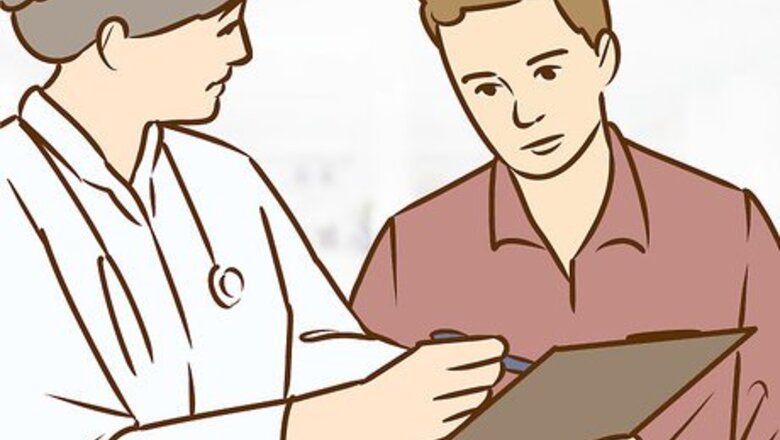
views
X
Trustworthy Source
Mayo Clinic
Educational website from one of the world's leading hospitals
Go to source
Having a loved one with hypochondria can be frustrating. You may know that nothing is wrong with them, but no matter what, they believe they are ill. You can help someone with hypochondria by helping them get professional help, helping them change their habits, and protecting yourself by setting boundaries.
Encouraging the Person to Get Professional Help
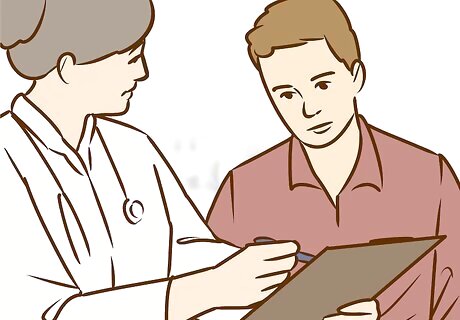
Advise them to go to the doctor. You should help your loved one go see a trusted doctor. If they have seen one doctor, you may suggest a second opinion just to be sure; however, once they have seen two trusted doctors, they shouldn’t go see another medical doctor. Instead, suggest they go see a therapist or psychiatrist. For example, you may say, “I know you have anxiety about your health. You should get a second opinion just to make sure there is nothing wrong. However, if the second doctor doesn’t find anything, you should accept the diagnosis.” After they see doctors, you can say, “You’ve seen two great doctors who found nothing medically wrong with you. I think you should go see a psychiatrist or therapist now.”
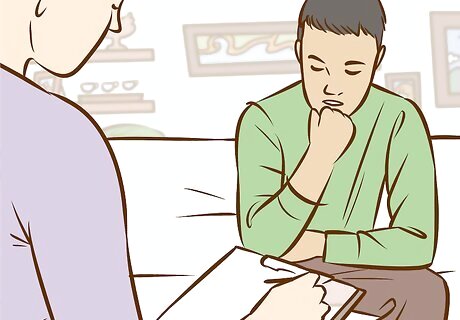
Recommend that they go to therapy. If your loved one suffers from hypochondria, they may need therapy. Hypochondria is often related to anxiety, obsessive compulsive disorder, or past trauma. This means that being treated for the underlying condition by a mental health expert can help. An estimated 75-85% of people with hypochondria also have anxiety, depression or another mental disorder. Cognitive behavioral therapy (CBT) is a common therapy used to treat hypochondria. During CBT, the person will learn how to identify unhealthy thoughts that cause their fears and to replace those thoughts with healthier thoughts. They also will work on not misinterpreting body sensations. Stress management therapy helps your loved one to learn how to relax and manage stress. Through relaxation, the person can stop obsessing over thoughts of illness. Managing stress can lead to less physical stress symptoms, like heart palpitations, which can be misinterpreted. Talk therapy may be used to cope with fears or deal with a trauma from the past.

Suggest they discuss medication with their doctor. Some people with hypochondria can be prescribed antidepressants or anti-anxiety medication to help treat underlying conditions related to their hypochondria. Understand, however, that there are no medications approved specifically for the treatment of hypochondria, so using antidepressants in this way is considered off-label use. Talk to your loved one about discussing this possibility with their doctor. SSRIs may be prescribed to help with underlying depression or anxiety disorders that can lead to hypochondria. You should never suggest your loved one take medication, only suggest they discuss the treatment option with their doctor.

Encourage them to only go to the doctor for scheduled appointments. Many people with health anxiety will go to the doctor for every symptom they think they have, or they will go to the emergency room because they think they are having serious symptoms. Your loved one should only go to the doctor for scheduled appointments, so help them refrain from going to the doctor for everything. You may say to your loved one, “You have a doctor’s appointment in three months. At your doctor’s last appointment, they found nothing wrong. You should wait for the scheduled appointment in a few months.”
Helping Them Change their Behaviors
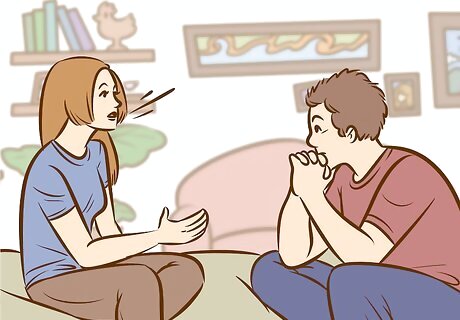
Encourage them to believe their doctor. Most people with OCD will still think something is wrong with them even if their doctor tells them they are fine. Many will go to other doctors because they are convinced the doctor is missing something. Try to help your loved one accept the doctor’s diagnosis instead of obsessing that something is wrong. For example, you might say, “Your doctor ran multiple tests, all which showed that you are healthy. Believe that the tests were accurate and your doctor wouldn’t misdiagnose you.”

Help them to stop obsessively checking for symptoms. People with health anxiety check for symptoms multiple times a day, sometimes upwards of 30 times each day. You can help your friend stop checking for symptoms by helping them log each time they check for them and slowly reduce the number of times they do that behavior. For example, your friend can count how many times they check for symptoms. If they check 30 times each day for symptoms, suggest that they cut that number by two to four the next day. When they reduce it to 26 or 27 times, suggest they go down two to five more. When they get down to 23, suggest they decrease that, and so on. Help them decrease the amounts of time they look for symptoms each day until they are below five times each day.
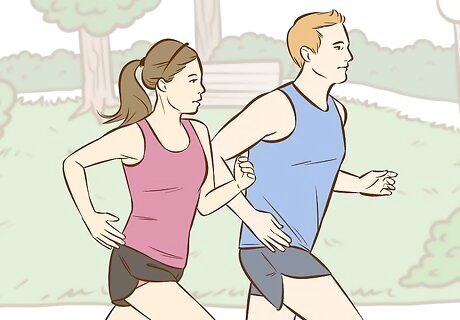
Encourage them to participate in normal activities. Hypochondriacs often stop doing things, don’t go on vacations or travel, avoid groups or new places, stop exercising, and even refrain from having sex. Encourage your loved one to do more activities. Go slowly by suggesting they do one thing they used to each week until they are mostly doing their normal activities. You may say to them, “You used to be active, but now your health anxiety is keeping you from living. Let’s work together to get you back to doing your normal activities.” For example, the first week you may suggest that your friend goes for a short, brisk walk or out to dinner. The next week, your loved one can add something else, like walking up stairs or traveling to a neighboring town. Continue adding new activities every week or two until your loved one is doing most of their activities.
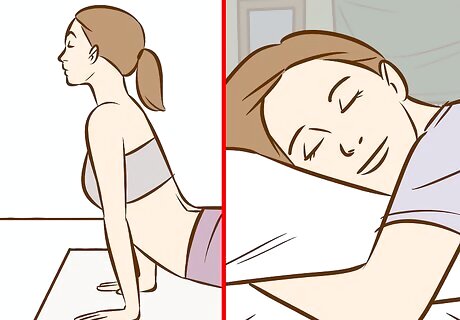
Help them adopt healthy habits. Adopting healthy lifestyle changes can help a person with health anxiety feel better and less stressed. Often, anxiety and stress can lead to symptoms that are may be misinterpreted. Talk to your loved one about what healthy habits they can include in their life. Eat a balanced diet. Reducing foods that are high in saturated or trans fats, sugar, or refined carbs can help reduce physical symptoms that may be misinterpreted. Getting enough sleep can help you reduce symptoms that are related to fatigue or sleep deprivation. Enough sleep also helps you feel better and improves your mood. Exercise. This is another proven way to reduce stress. Learn how to reduce stress through yoga, meditation, and deep breathing.
Protecting Yourself
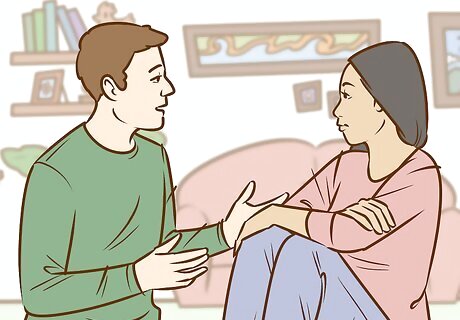
Set clear boundaries. If a friend or loved one has hypochondria, you more than likely want to help; however, you need to set clear boundaries. Your loved one may call you at all hours, ask you to go to doctor’s appointments with them, or turn any discussion of your own illnesses into conversations about them. Set boundaries to make sure you take care of yourself. For example, tell your loved one that you understand their anxiety about their health, but they cannot call you in the middle of the night. Let them know what you will and won’t do or talk about. You may say, “I understand that you may get panicked in the middle of the night because you believe you have an illness. However, I cannot allow you to call me to talk after I have gone to bed.” You may have to say something like, “We are not talking about what illness you believe you have right now. We are talking about me and the illness I have been diagnosed with.”

Limit the amount of reassurance you provide. Hypochondriacs need constant reassurance from doctors, their families, and their friends. You may have already found yourself providing endless reassurance to your loved one that they are not sick. While you may feel like you should support and reassure your friend, giving a hypochondriac constant reassurance can lead to more attention-seeking behavior instead of encouraging them to get help. Instead of reassuring your friend, you can say, “We have discussed this before and your doctor said you did not have an illness. I’m not going to tell you that you are okay;” or, “I am not going to reassure you that you are not sick. I’m not a medical professional. If your doctor said you are not ill, then believe them.”
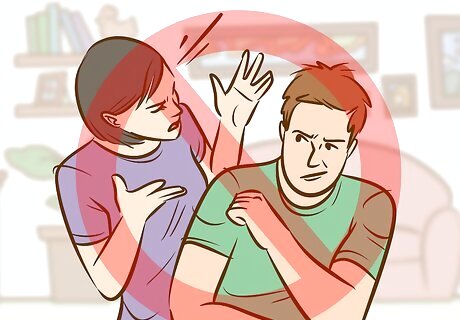
Avoid letting the other person’s behavior to interfere with your life. People who suffer from health anxiety can let it negatively impact their lives. They may end up not doing things or letting it interfere with their normal activities. Try to avoid letting their anxiety interfere with your life. For example, people who have health anxiety can stop doing activities, like exercising, going out into groups, driving to places, or going to dinner. Try not to let them keep you from doing things you are interested in. You may also find that the hypochondriac is always talking about the illness they believe they have. This may dominate every conversation you have, or they may contact you all the time to talk about their fears. Work to not let the conversation always be about this. Try saying things like, “But the doctor said you were fine, so let’s talk about other things. How are your family? How are things going at work?”

Resist letting yourself feel excessive guilt or worry. If you have a loved one with hypochondria, you may feel guilty because you think you are not supporting them enough or that you may be ignoring a legitimate illness. Try not to let yourself feel guilty because of this. You should be caring of the person, but firm in helping them realize their symptoms are not real. Help them understand a headache is a common, normal occurrence, or that their funny heartbeat is probably related to stress. You can listen to their fears and anxieties, but don’t reassure or encourage them. Be supportive, but don’t let your loved one dwell. Instead, carefully change the subject after they have voiced their concerns.



















Comments
0 comment